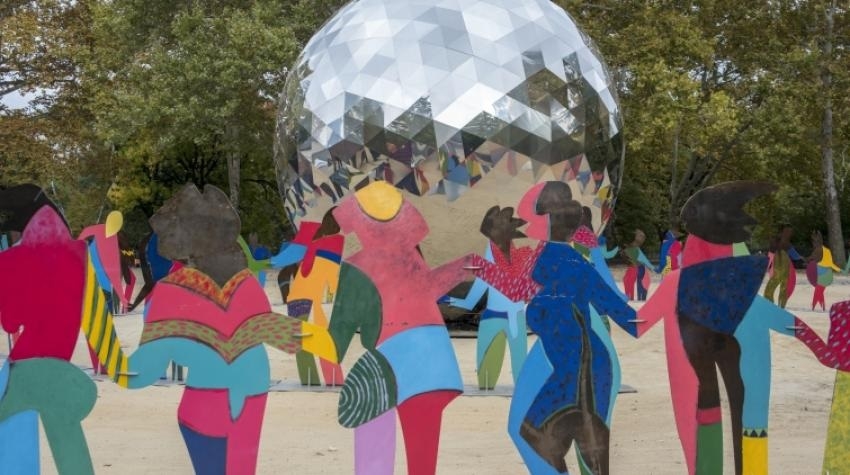Who qualifies to be a global citizen?
17 Nov 2024 10:06:13

By DR BHUSHAN KUMAR UPADHYAYA :
The modern time has seen
very intricate inter connectivity and interaction
at the global level. Something
happening in a remote part of
the world has ripples in other
places. Mutual interdependence in all fields of life has
become the order of the day. At
the first glance the interconnectedness seems to be at the
material and phenomenal levels. But profound research into
the field of astrophysics has
revealed that the universe has
very deep interconnection. In
his famous book, The Tao of
Physics, Fritjof Capra has concluded that the entire universe
is an unbroken web of interconnectedness. He has profusely quoted from Buddhist
and Upanishadic texts.
The Upanishadic literature is
full of statements advocating
the oneness and interconnectedness of the universe. The
core concept of the
Upanishadic philosophy is
Brahma, the Supreme Reality.
Brahma gets manifested and
mirrored in diverse ways.
Hence there is interconnection
in all the diversities. The universe emerges from Brahma
and again gets dissolved into It.
It is a continuous process. The
following two Upanishadic
quotes are very illuminating1) Isavasyam Idam Sarvam or
everything is, but divine.
2) Sarvam Khalvidam Brahma
or everything is, but Brahma
or the Supreme Reality.
The Upanishadic thoughts
laid the foundation stone of
Vasudhaiva Kutumbaka or the
entire globe as a family. The
concept of the global family
originated in the Indian subcontinent thousands of years
ago. Sarve Bhavantu Sukhinah
or everyone should be happy is
the culmination of this Indian
thought. This approach
reflects the global mindset. The
Indian tradition has accepted
the natural and inborn equality and fraternity of mankind.
This is a view which perceives
humanity as a whole. While
retaining the personal identity,
the Indian mindset considers
itself as an integral part of the
entire globe. Sects, religions,
community, race, nationalities,
caste, creed, sex etc all melt
down into the cauldron of
humanity. Everything whether
living or non living is the
expression of the divine.
Thus
the Indian values are based
upon a sense of collective consciousness. It believes in global
networks which are inclusive
and all encompassing. This is
the reason that diversity is
considered not as contradictory, but complementary and
panoramic. The Vedas,
Brahmanas, Aranyakas ,
Upanishads, six systems of
Astik philosophy and four systems of Nastik philosophy and
a host of other philosophical
thoughts are the best examples
of this belief. Every philosopher
in the Indian tradition has
been called a seer or a sage.
The Sankhya philosophy has
not accepted the existence of
God. Buddhism, Jainism,
Charvaka and Lokayatanas form
the part of philosophy which
are based upon non Vedic
faith.Yoga, Tantra, Gyana,
Bhakti, Karma etc, are the multiple ways to know the ultimate reality. Ekam Sadma Vipra
Bahudha Vadanti is the declaration of the global citizenship
where the same truth is
expressed in diverse ways.
There is no concept of blasphemy or conversion in the Indian
systems of thoughts. Hence,
this way of thought and practice truly fits into the mechanism of global and universal
citizenship.

(The writer is Former DG
Police & CG, Homeguards,
Maharashtra)
■
